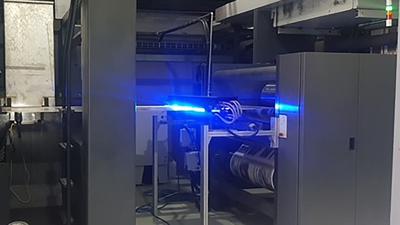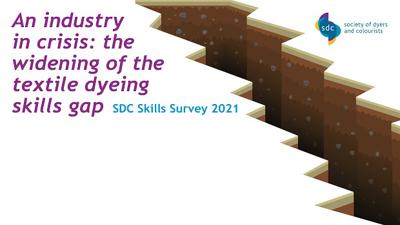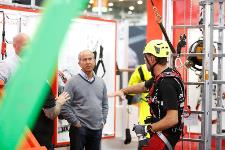Technical Textiles 4/2022

Dr. Uwe Mazura (Source: grabowsky)
Corona, broken supply chains, the cost explosion for energy and raw materials, the Russian war of aggression on Ukraine, high inflation – never before have companies in the textile and apparel industry had to master so many crises at once. One major problem that has not even been listed yet is the shortage of skilled workers, which our companies have been combating for years with great commitment in terms of training.
Companies in the textile and apparel industry are in the midst of the biggest high-speed transformation process of the post-war era. They are working with high motivation on sustainable and climate-neutral products that will make a decisive contribution to Europe's path to a climate-neutral future. Textiles are the material that the future is made of. What matters now is whether innovative products can still be produced in Europe at all. The skyrocketing prices for energy and raw materials are threatening the livelihoods of many companies. The economic consequences of the Russian war of aggression on Ukraine pose enormous challenges for the entire SME industry. In addition to the current challenges, there is also the shortage of skilled workers, which has kept our companies busy and creative for years: with new formats and campaigns for the right match, at local open days, at regional training fairs or in social media. Every day, they show that the industry has undergone a transformation away from its dusty image and towards an industry that today stands for sophisticated products and innovative production processes, as well as for versatile apprenticeships and individual training opportunities. In modern training centers such as the Textilakademie NRW in Mönchengladbach/Germany or, in the near future, in Reutlingen/Germany at the Texoversum, the industry is demonstrating that it is preparing responsibly for the challenges ahead.
One example is when the Verband der Nordwestdeutschen Textil- und Bekleidungsindustrie (Association of the Northwest German Textile and Clothing Industry) in Münster/Germany and the Verband der Rheinischen Textil- und Bekleidungsindustrie (Association of the Rhenish Textile and Clothing Industry) in Wuppertal/Germany at the Mönchengladbach site, on their own initiative and without public funding, bundle vocational school training for industrial-technical apprenticeships and combine this with further offers of vocational preparation and inter-company training centers, through vocational further training, up to dual studies. Future-oriented equipment and training also await the next generation of employees in the Texoversum, which will open in 2023. Following the construction of the building at the Reutlingen University site, for which the Verband der Südwestdeutschen Textil- und Bekleidungsindustrie (Südwesttextil) Association of the Southwest German Textile and Clothing Industry) is responsible and which it financed, a training and innovation center will be created that will offer plenty of space for workshops, laboratories, the internationally renowned fabric collection of the Faculty of Textiles & Design, think tank areas and classrooms. These are precedents that are setting an example. Which we support with our Go Textile training campaign, which even won a media award.
However, campaigns are one thing. The other is the sober reality of demographics, with more people retiring than young people entering the workforce. There were 63,000 unfilled apprenticeship/training positions in Germany last year. In Saxony and Thuringia alone, 1/3 of these positions in the textile and fashion industry remained unfilled. It is therefore no wonder that the number of trainees in our industry fell again last year.
Notwithstanding, complaining about the statistics is not helpful. In a joint future conference, solutions were discussed with the collective bargaining partner IG Metall, such as bringing skilled workers and young people who want to do an apprenticeship to Germany more easily and quickly. All stakeholders agree that the economic success of companies can only be achieved with the right skilled workers and employees. Moreover, demand will remain high at all skill levels due to demographic change.
Well-trained employees are the key, and they secure the future of the entire textile and apparel industry. It is up to the companies to give young people practical insights into working life at an even earlier stage. Furthermore, it is up to policymakers to expand career guidance in schools across the board and provide the right incentives for vocational training, so that the shortage of skilled workers does not put the brakes on innovation and the future viability of our industry. Entire generations of federal governments have praised "dual training, Made in Germany" as a model; now it is time for the government's online portal for skilled workers from abroad, "Make it in Germany", to become active political action.
Dr. Uwe Mazura
Director General, Confederation of the German Textile and Fashion Industry (Gesamtverband textil+mode)
Berlin/Germany
Director General, Confederation of the German Textile and Fashion Industry (Gesamtverband textil+mode)
Berlin/Germany



